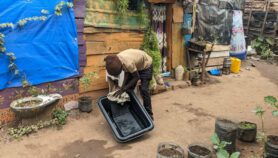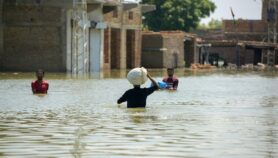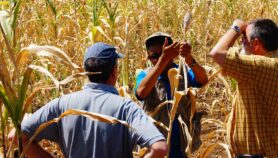Send to a friend
The details you provide on this page will not be used to send unsolicited email, and will not be sold to a 3rd party. See privacy policy.
[JAKARTA] Objectives on biodiversity, fisheries and climate change outcomes should be integrated when designating Marine Protected Areas (MPA) for the so-called Coral Triangle, according to a report by a consortium studying methods to protect the region.
The Coral Triangle refers to the tropical waters around Indonesia, Malaysia, Papua New Guinea, Philippines, Solomon Islands and Timor Leste. It is recognised as a global centre of marine biodiversity, and is a conservation priority area for the region.
The region faces significant threats due to pollution and overuse of ocean resources by local residents. Around a third of the 370 million people in the Coral Triangle depend on fish and other marine products for food and income, according to the report published last month by the United States Agency for International Development-backed Coral Triangle Support Partnership.
It says differing and sometimes conflicting objectives have tended to guide the design of MPAs. Those designed by non-governmental organisations tend to emphasise biodiversity and climate change objectives, while MPAs designed by government bodies and local communities are often focused on objectives related to fisheries.
"There are different perspectives between the two [sets of] objectives, and we need to integrate them," said Alison Green, an Australia-based marine scientist with the Nature Conservancy, and a co-author of the report.
"We are pretty [close] to a new scientific design that covers all three objectives [fisheries, biodiversity and climate change], but its implementation [will be] the hard part," she told SciDev.Net.
Green added that MPA design requires input from a broad range of science expertise. The report particularly cited the need for capacity-building in this regard in East Timor, Papua New Guinea, and Solomon Islands.
Green said that in order to implement effective MPAs in the region, governments and NGOs needed to work with local communities to adjust socio-economic and political conditions with a view to creating job opportunities that weren’t so dependent on ocean resources, as well as synchronising ecological and political boundaries to ensure local governments and communities were adhering to the same development agenda.
She said another challenge was getting fisheries managers and MPA managers to work together, to straddle the delicate balance between production and conservation.
Tiene Gunawan, a senior policy specialist with Conservation International in Indonesia, said that another challenge to effective MPA implementation lay in the lack of awareness about the value of MPAs and the Coral Triangle itself among decision-makers and industry.
"The biggest challenge does not come from the government or from the local people," she said. "It comes from those who deal with the development of the areas near the MPAs for tourism and mining industries."
Link to full report ![]() [3.64MB]
[3.64MB]













